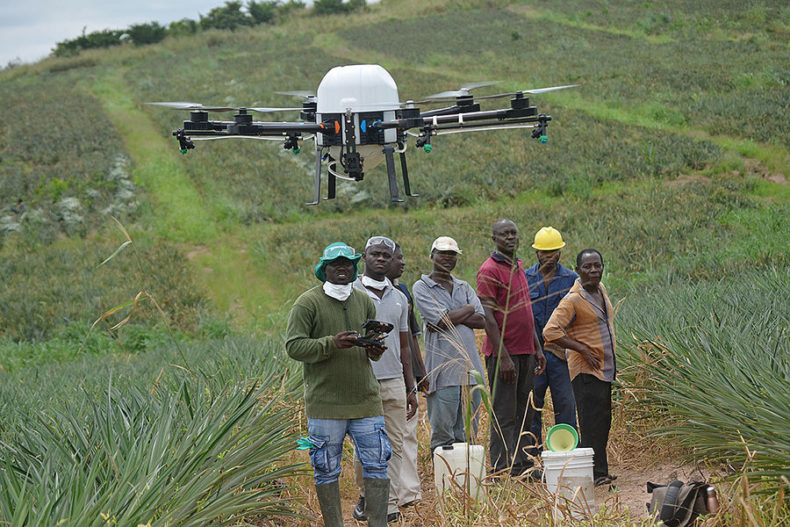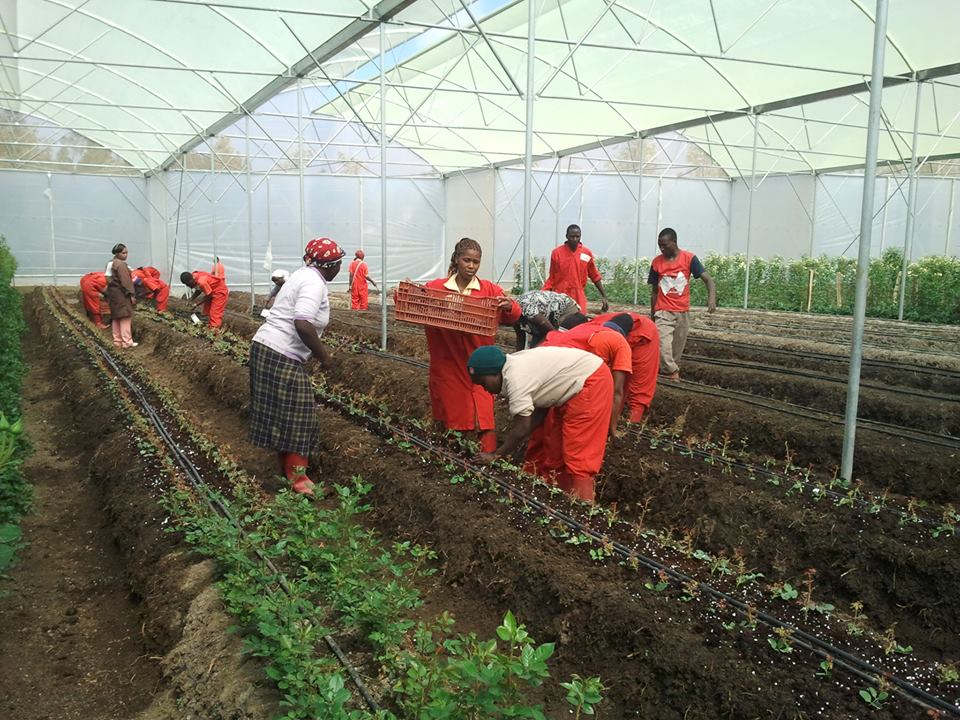The experiments started at a citrus farm in Cape Town where James Paterson was born. By 2014, that passion became Aerobotics – a startup that has now raised $17m from investors to help farmers grow fruits and trees using images from satellites and drones.
Aerobotics is a company of engineers, agronomists, and data scientists. Its business is to devise hardware and software technology for precision agriculture anywhere in the world.
Their tools are calibrated to generate insights for tree and fruit farmers to manage their resources optimally. Farmers are able to track trees, detect those that are unhealthy, and act decisively where needed. Yield is maximised and disease kept at bay.
With this $17m Series B round, Aerobotics plans to double down on this value proposition.
The round was led by Naspers, the South Africa-based tech company and mega investor. Cathay AfricInvest Innovation and FMO – two existing investors – also participated, and were joined by Platform Investment Partners, another South African firm.
Paterson makes a point of describing Aerobotics as a “proudly South African business.”
He co-founded the startup with Benji Meltzer, a former operations and logistics manager at Uber. Both of them lead a team of about 80 people based in Capetown and oversee commercial offices in the US, Australia and Portugal.
They say their services are deployed in 18 countries across Africa, Asia and Europe.
Such an expansive footprint gives the startup a leading role as a technological mediator in the global race to provide enough food for the world’s growing population. As climate change distorts regular planting and harvesting seasons, farmers need more predictive powers to maximize output.
Aerobotics wants to solve this challenge not just for Africa but for farmers everywhere. The US has become one of its core markets, causing their revenue to grow “in excess of an order of magnitude,” according to a statement.
This growth is powered by a combination of three technologies: satellite imagery, high-resolution drone imagery, and machine learning.
Farmers in Africa use drones to complement traditional farming activities like spraying fertilizer and warding off pests. The Food and Agriculture Organization encourages this. But it’s just a different form of mechanized farming. On the other hand, integrating software into drones and using satellite imagery adds a digital dimension to the ancient profession.
To access the power of Aerobotics’ tech, farm owners sign up on Aerobotics’ cloud-based application called Aeroview. They download a mobile app called Aeroview Field to inspect threats on the ground and view farm analytics data on a machine-learning enabled platform.
On this platform, a new feature called Tree Insights helps farmers understand the relationship between crop performance and soil nutrients. Another feature for modelling crop insurance is in the pipeline.
After six years in which they have analysed 100 million trees and more than 1 million fruits, Aerobotics wants to smash past more agritech boundaries. They hope to seal patents for estimating tree age, and another for predicting the yield of tree crops.
A partnership with Wageningen University and Research, a specialist Dutch institute on food and climate research, will help them delve deeper into the science and technology of agriculture that benefits farmers and feeds the world.
Aerobotics says this Series B was oversubscribed. Indeed, their announcement this week formalizes a process that has been ongoing since May 2020 Naspers’ $5.5m investment was first reported. The amount grew to $16.5m as reported in December 2020 when FMO and Cathay AfricInvest Innovation joined the fray.
Naspers invested through Naspers Foundry, an initiative launched in 2019 to invest 1.4 billion rand (~$100 million) over three years into South Africa-focused startups.
FMO is the Dutch government’s entrepreneurial bank that has offices in South Africa and Kenya, while Cathay AfricInvest Innovation is a pan-African fund owned by Cathay Innovation and AfricInvest. They invest an initial check of between $1m and $10m in growth-stage startups.
Before these later-stage investors, Aerobotics got its early-stage support from 4Di Capital and Savannah Fund ($600,000 seed round in September 2017). Nedbank Capital and Paper Plane Ventures drove their $4 million Series A in February 2019.
Aerobotics increases the feeling of excitement around agritech in Africa.
In 2020, Kenya’s Apollo Agriculture and Zambia-based Good Nature Agro raised large seven-figure sums. Gro Intelligence, the AI-enabled startup founded by Ethiopia-born Sara Menker, announced a smashing $85m Series B this month. If agritech fundraising is to be read as a sign of favourable future events, then the world should prepare to be fed by African solutions.




















